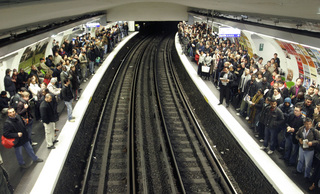The success of future services will rely on building customer confidence.
Published:
27 March 2001 y., Tuesday
Many leading companies with an interest in the field have formed an alliance called Radicchio. The aim is to produce a standard for cross-platform, end-to-end encryption (the translation of data into a code that requires a secret key or password) for security. Known as PKI (Public Key Infrastructure), it comprises a two-part data encryption/ decryption key. One part is available for distribution to companies supplying services, while the other is kept privately by the user, much like the PIN number for a credit card.
Mike Walker, chief scientist for Vodafone, chairman of the 3GPP (Third Generation Partnership Project – the standardisation forum for 3G mobile systems) Working Group SA3 (Security) and a member of the Radicchio board says that PKI is vital to ensure that mobile e-commerce does not suffer from the same degree of distrust as has fixed-access Internet trading.
Other solutions do exist for these technologies. WAP has a built-in security feature, but it only encrypts data between the handset and the gateway to the Internet. This means that any data sent beyond this point could be read by anyone with the means to intercept it. Some companies, in partnership with banks and traders, have set up Virtual Private Networks (VPNs), so that customers can carry out secure transactions and pass sensitive data without using the public part of the World Wide Web. However, the service is only available from those companies that have signed up with a VPN. This may be fine for banks and their customers, but in the long run it will not deliver the freedom to trade with whomever one wishes on the public Web.
Šaltinis:
cebitnews.com
Copying, publishing, announcing any information from the News.lt portal without written permission of News.lt editorial office is prohibited.
The most popular articles
 75 years after Moscow first opened its underground train system, Muscovites can ride a restored vintage train.
more »
75 years after Moscow first opened its underground train system, Muscovites can ride a restored vintage train.
more »
 A glacier melt threatens to cause massive flooding and destroy a centuries old monastic fortress in the remote country of Bhutan.
more »
A glacier melt threatens to cause massive flooding and destroy a centuries old monastic fortress in the remote country of Bhutan.
more »
 What do countries as geographically diverse as Saudi Arabia, Uganda and Jamaica have in common? All of them criminalised homosexuality.
more »
What do countries as geographically diverse as Saudi Arabia, Uganda and Jamaica have in common? All of them criminalised homosexuality.
more »
 Human rights is a key issue for the European Parliament and MEPs Monday took a first look at what the European Union did last year, when they discussed the EU annual report on human rights in the world.
more »
Human rights is a key issue for the European Parliament and MEPs Monday took a first look at what the European Union did last year, when they discussed the EU annual report on human rights in the world.
more »
 Researchers found high levels of mecury in a Japenese dolphin-hunting town, but say the mecury has no ill effects.
more »
Researchers found high levels of mecury in a Japenese dolphin-hunting town, but say the mecury has no ill effects.
more »
 Crowds of Mexicans marched peacefully through the capital city on Saturday demanding the legalisation of marijuana.
more »
Crowds of Mexicans marched peacefully through the capital city on Saturday demanding the legalisation of marijuana.
more »
 Prisoners are reported to have dramatic improvements in behaviour after pets are introduced in a new scheme.
more »
Prisoners are reported to have dramatic improvements in behaviour after pets are introduced in a new scheme.
more »
 Israeli Ultra-Orthodox MPs are lining up against activists proposing a total ban on furs, saying traditional fur hats are an important part of their religious tradition.
more »
Israeli Ultra-Orthodox MPs are lining up against activists proposing a total ban on furs, saying traditional fur hats are an important part of their religious tradition.
more »
 EU Member States should organise social protection, including at least 14 weeks' maternity allowance, for self-employed women and self-employed men's wives or life partners, in accordance with national laws, said the Women's Rights Committee on Tuesday.
more »
EU Member States should organise social protection, including at least 14 weeks' maternity allowance, for self-employed women and self-employed men's wives or life partners, in accordance with national laws, said the Women's Rights Committee on Tuesday.
more »
 How are the European Parliament, the European Commission and other parts of the European Union supposed to interest people and explain their work?
more »
How are the European Parliament, the European Commission and other parts of the European Union supposed to interest people and explain their work?
more »